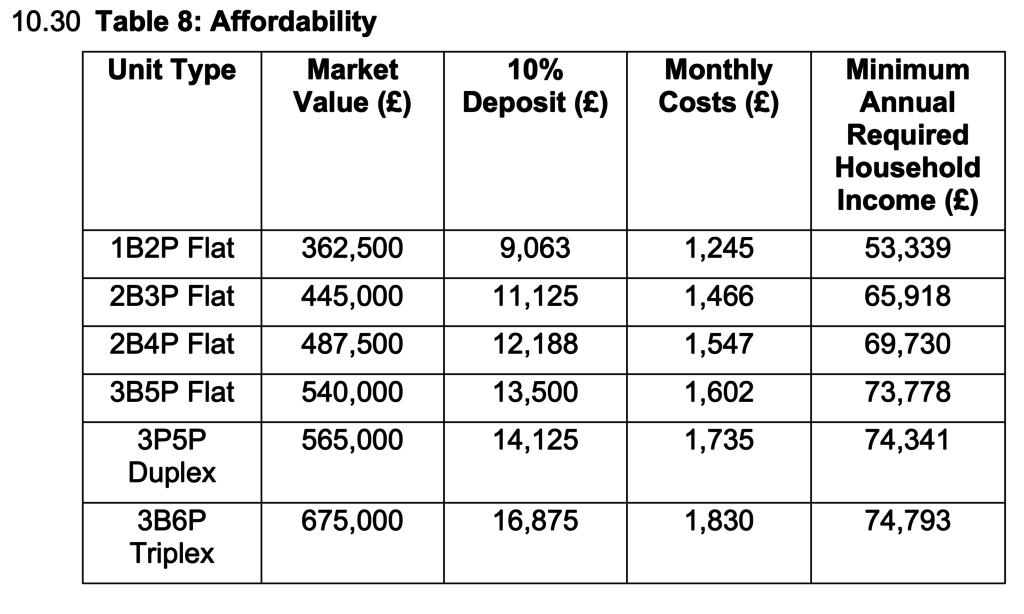LBWF’s flagship Blackhorse Yard ‘affordable’ housing scheme teeters, as developer Swan Housing steps away
The future of LBWF’s flagship ‘affordable’ housing scheme at Blackhorse Yard has been thrown into disarray, following the withdrawal of one of its two developers, Swan Housing.
Swan Housing and its partner, Catalyst Homes, originally had gained planning permission for Blackhorse Yard in February 2019, and intended to deliver ‘359 affordable homes for shared ownership’, together with ‘a creative hub for artisans, artists’ studios, new retail space and an exciting and vibrant public realm’, using a site that had been purchased expressly for their purpose by the Mayor of London.
LBWF’s then Leader, Cllr. Clare Coghill, was jubilant, claiming, ‘“We are really pleased that the first site of 100 per cent affordable London housing, will be found in Waltham Forest”’.
After some further negotiation about details, LBWF granted the green light for building to proceed in April 2021, prompting Swan Deputy Chief Executive to predict a rosy future:
‘“Swan is really excited to be working with Catalyst to deliver Blackhorse Yard as an all-affordable high-quality housing scheme. As well as helping to address local housing need the scheme will make a real difference to the local community by also providing new public spaces, including a creative hub and artists’ studios which will add vibrancy, and help to install a sense of [sic] whilst providing a nod to the site’s roots as a former glass lampshade and bulb factory”’.
However, a few weeks ago, Inside Housing reported that Swan was stepping away with immediate effect, though neither of the erstwhile partners was prepared to say why.
Subsequently, it’s emerged that Swan recently has been criticised twice in quick succession by the government’s Regulator of Social Housing (RSH).
In December 2021, the RSH found that Swan was non-compliant with its Governance and Financial Viability Standard, stemming from ‘ineffective management of its development programme’, made worse by the ‘inconsistent’ information which had been presented to the board and regulator.
Five months later, after further investigations, the RSH concluded that Swan was also in breach of its Housing Standard, largely because of health and safety failings. Some of the details are shocking:
‘In respect of fire safety, Swan has a statutory duty to regularly assess the risk of fire and to take precautions to prevent the risk of fire. There were indications of concerns about fire safety as early as March 2020, when Swan identified internally an increase in the number of overdue fire risk assessments. By October 2020, almost 200 fire risk assessments were overdue. Swan did not inform the regulator of the emerging issues with its fire safety at that time. Swan has since completed the overdue fire risk assessments, although…in March 2022, Swan had almost 1,500 remedial actions overdue. Of these, more than half were high or medium risk actions. At the end of April 2022, over 650 high and medium risk actions remain overdue.
Swan has a statutory duty to manage asbestos in communal areas. The provider reported that more than half of its communal areas did not have an asbestos management survey in place. Swan also reported it was not following guidance for an annual review of areas where asbestos was present, as it was only carrying out reviews every five years’.
Was LBWF blindsided by Swan, or did its due diligence slip up?
Swan’s financial issues seem to have emerged largely out of the blue. Indeed, 12 months before taking regulatory action, the SRA had judged it to be fully compliant. So on this count, LBWF is likely off the hook.
On the other hand, LBWF’s failure to pick up on Swan’s poor safety record is much less excusable. The probable explanation is that, at the time, LBWF had similar deficiencies, though that is hardly a good alibi. The bottom line is that when in April 2021 LBWF gave Catalyst and Swan sign off, even half way rigorous questioning would have revealed the unpalatable truth.
What of the future? Catalyst has now become a subsidiary of Peabody, and a full merger is scheduled for 2023. Whether either LBWF or Peabody is looking to replace Swan is unknown.
No doubt Labour politicians, local and in City Hall, believe Blackhorse Yard is too important to fail. But at what cost?
PS
All parties involved, including Cllr. Coghill and Mayor Khan, have, as noted, referred to the Blackhorse Yard development as consisting of ‘affordable’ housing.
The table appended below, taken from LBWF planning documents, summarises data on the supposed ‘affordability’.
Median household income in Waltham Forest is c. £35,000, though there are considerable variations between richer and poorer wards, with the figures for Endlebury and Leyton being c. £43,000 and c. £28,000 respectively.
Against this background, the repeated use of the term ‘affordable’ seems to be little more than a cheap con trick.

